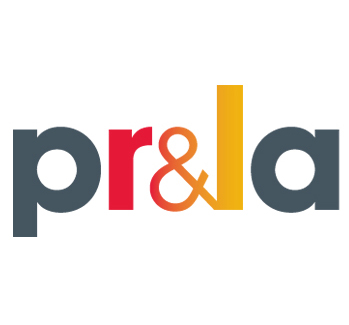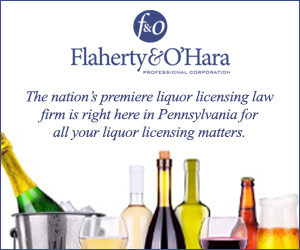State Items
Fall session begins
The House & Senate have returned to Harrisburg for the fall legislative session. A busy agenda is ahead with some of the following key issues slated for consideration:
- Criminal justice reform
- Election reform
- Gun control/reform legislation
- Child sex abuse statute of limitations
Minimum Wage—this fall and on
The legislature returned to session on September 17 for its fall session schedule. The Governor continues to make an increase of the minimum wage to $15/hour and elimination of the tipped wage entirely a top priority. The Governor intends to make a push this fall but it is more likely to become a Spring 2020 issue due to it being an election year. Republicans currently hold the Senate majority (28–22) and House majority (110–93). However, half of the Senate seats and all 203 House seats are up for reelection in 2020, meaning minimum wage will be a topic of discussion leading up to Election Day.
Labor preemption
Due to the Supreme Court ruling that Pittsburgh’s paid leave mandate is legal and Philadelphia recently passing a scheduling mandate, a renewed push to pass HB 331 (Grove—R, York), which would preempt municipalities from passing labor mandates on business, is underway. We hope to have a House vote on the bill this fall.
HB 787—online home sharing registry
While PRLA was instrumental in getting Act 109 of 2018 signed into law (closing the online travel company loophole), online home sharing companies are still not sharing specific information of what properties they are remitting tax on behalf of. HB 787 (Heffley—R, Carbon) would require these companies to share the listing information with the state Department of Revenue and then require the Department to share that information with the counties to ensure local tax and operational compliance. The legislation was overwhelmingly voted out of the House Tourism & Recreational Development Committee and should be considered by the full House this fall.
Act 109 revenue
Since March of 2019, the state has seen $2 million in additional revenue go to the tourism office from closing the online travel company loophole and requiring online home sharing portals to remit tax. So far, 14 companies have registered with the state to remit occupancy tax.
Pennsylvania proposed salary threshold regulation
Last year, the Governor proposed increasing the salary threshold for exempt employees to $49,000/year. There was a swift response from the business and non-profit communities, and it is expected the Governor’s Office will release an updated proposal within the coming months. It remains to be seen if the Governor will listen to feedback or move forward with his original proposal.
Liquor legislation this fall
The House Liquor Control Committee and Senate Law & Justice Committee spent the summer holding several hearing and meetings with the expectation that omnibus legislation would be put together and start moving through the legislative process this fall/next spring. Stay tuned for updates as that legislation is created.
PRLA’s liquor priorities
PRLA continues to push for HB 1617 (Staats—R, Bucks) which would allow for Hotel licenses in existence before 1949 to be converted to a Restaurant license and reforms to the statewide auction. We are cautiously optimistic that both provisions will be included in an omnibus bill.
Federal Items
Raise the wage act
The U.S. House passed the Raise the Wage Act (H.R. 582) by a vote of 231–199. Three Republicans voted for the bill, including Congressman Brian Fitzpatrick from Pennsylvania. The bill would increase the minimum wage to $15/hour and completely eliminate the tipped wage. While the Senate is unlikely to move on this bill, it does put pressure for the federal minimum wage to be addressed.
Stop online booking scams act
Several U.S. Senators have introduced legislation that would prohibit third-party online hotel reservation sellers who are not affiliated with a hotel to advertise, promote, or sell a reservation if they state or imply that they are the actual hotel or owner. This legislation is becoming necessary as more of these sites pop up, causing confusion, mistakes, and frustration for hotels and customers alike.
Health insurance tax
If legislation is not passed to delay or repeal the health insurance tax (HIT), private health insurers will have to pay $15.5 billion in 2020, a cost that will be passed along in the form of higher premiums. There is bipartisan legislation in the House and Senate that would either permanently repeal the tax or delay it for two years.
Visa/Mastercard antitrust litigation settlement
Businesses may soon start receiving court-approved notices relating to a proposed settlement in the damages class action of this case. The settlement stipulates that businesses will receive part of a $5 billion settlement if they accepted Visa or MasterCard between January 2004 and January 2019. Claim forms will be sent out after the settlement is finalized. **There are many companies that may contact you claiming you need to sign up for their services to access the settlement, but this is not the case. You will receive a claim form from the Court if you are eligible for the settlement. You do not need to hire anyone to access it for you.**
Local Items
Philadelphia—healthy kids
Councilwoman Blondell-Reynolds Brown has introduced legislation that would require all foodservice establishments in the City of Philadelphia that offer a kid’s meal to offer one of the following as the default beverage to be served with the meal: water, milk, or 100 percent fruit juice. PRLA has a number of concerns with the legislation.
Philadelphia—plastic bag ban
Councilman Mark Squilla has introduced legislation that would ban all plastic bags that are less than 2.25 millimeters thick and non-recyclable paper bags. Further, the legislation assesses a fee of 15 cents on all other bags that are thicker than 2.25 millimeters. Some bags, such as those for fruits and vegetables and used for meats and fish are exempted from the bill. Despite the state preempting this type of legislation until July 1, 2020, the Councilman still plans to move forward with it this fall.
Philadelphia—sodium warning label
Legislation took effect September 13 that requires any restaurant with 15 or more locations worldwide to put a sodium warning label next to menu items that exceed 2,300 mg of sodium.
Philadelphia—short term rentals
As listings on Airbnb and VRBO continue to grow in Philadelphia, larger companies like Sonder and StayAlfred are beginning to lease entire buildings to operate short term rentals. PRLA, in conjunction with the Greater Philadelphia Hotel Association, is working on legislation that will create a registry requirement and curb these illegal rentals.
Philadelphia—mandated scheduling
Philadelphia’s mandated predictive scheduling law is scheduled to take effect January 1, 2020. The legislation requires businesses to:
- Guarantee a certain number of hours and consistent schedule per week at the time of hire.
- Post schedules two weeks in advance and require predictability pay if the schedule needs to be changed at any point within the two-week period.
- Offer available hours to all existing employees before a new employee can be hired.
And violation of the law results in presumptive damage to the impacted employees and significant fines/litigation to the business.
Pittsburgh—Pa. Supreme Court declares paid leave legal
In a vote of 4–3, the State Supreme Court ruled that the Pittsburgh paid leave law is legal. PRLA continues to maintain that this was a political decision not based on the rule of law. We continue to wait to hear when the City will move forward with the mandate and exploring any/all other legal/legislative options. This dangerous precedent set by the Court leads to major concerns that the Court will find a way to approve almost any type of local labor mandate—despite precedent stating otherwise. •













